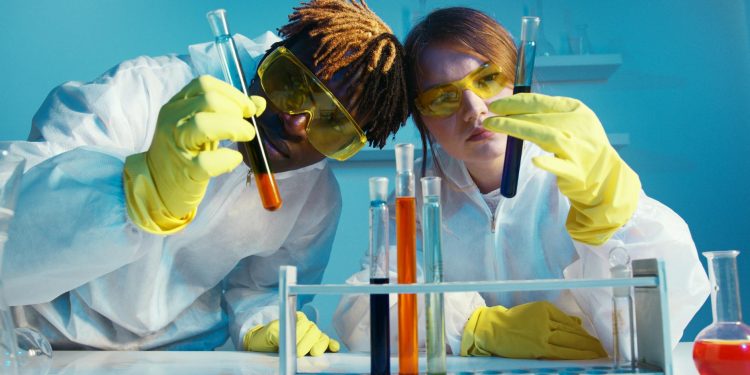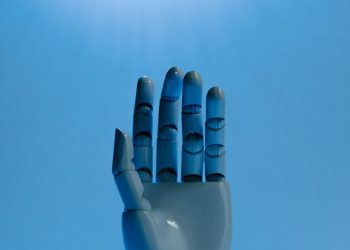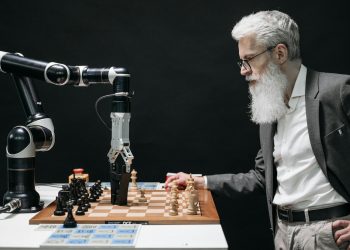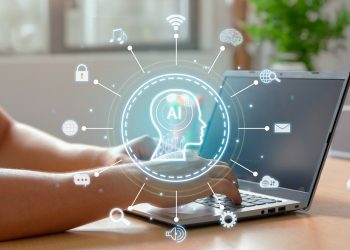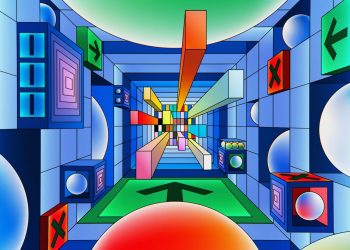AI Revolutionizing Drug Discovery
Introduction to AI in Healthcare
Artificial Intelligence is fundamentally shaking things up in healthcare, tackling problems in ways we once only dreamed about. From picking apart diseases to crafting the perfect treatment plan, AI digs deep into heaps of data with tools like machine learning, deep learning, and fancy natural language tricks. What we're seeing is a surge in clever, tech-powered approaches that make diagnosing patients less of a headache and give treatment plans a serious upgrade.
But AI isn't just playing doctor and patient manager; it's diving headfirst into the drug discovery process, mining data mountains, spotting new compounds, and making predictions with jaw-dropping precision. This tech embrace is pushing pharmaceutical research and development into a bright new era, helping AI-powered tools work their magic in this field.
Importance of AI in Drug Discovery
AI is flipping the script on how we discover new drugs, speeding things up, and cutting those hefty costs. The old way of finding new medications? Slow and pricey. But with AI doing the heavy lifting—analyzing huge slices of data and pinpointing hopeful new drugs—what used to take years can now happen in a fraction of the time.
- Quicker Hits: AI dives into pharmacological libraries, identifying potential superstar drugs way faster than those old-school methods.
- Smarter Bets: When machine learning steps in, it predicts how safe and effective a compound might be, meaning fewer faceplants during trials.
- Tailored Care: With AI, treatments can be tailored directly to someone's unique genetic blueprint, giving better results and causing fewer side-eye side effects.
| Perks of AI in Drug Discovery | In Layman's Term |
|---|---|
| Quicker Hits | Finds possible drug candidates faster |
| Smarter Bets | Boosts accuracy in predicting drug success |
| Tailored Care | Matches treatments to your genetic code |
Streamlining drug discovery with AI doesn't just save bucks; it throws life-saving meds onto pharmacy shelves faster than a carnival taco stand. Pharmaceutical folks turning to AI can finally tick off unsolved medical puzzles and give patients a better shot at a healthier tomorrow. For more brain fodder, peek into topics like machine learning in automation and ai-powered video analytics to see AI flexing its skills beyond just drug-making.
Curious about more in-depth AI action in pharma? Swing by our natural language processing ai section.
Merging AI with healthcare is paving an exciting road for drug development, ensuring we're getting it right and doing it fast when it comes to crafting fresh, life-changing therapies.
How AI Enhances Drug Discovery
Artificial Intelligence is shaking up pharmaceutical research, giving it a much-needed speed boost and fine-tuning various stages of the journey from lab to pharmacy.
Speeding Up Drug Development
Imagine slicing years off the time it takes to get new meds on the shelves. AI can gobble and analyze truckloads of data in record time, picking out promising drug candidates way faster than the old-school methods ever could. It's a major time-saver, bringing hope to patients sooner.
| Stage of Development | Traditional Time (Years) | AI-Powered Time (Years) |
|---|---|---|
| Target Identification | 2 - 3 | 1 - 2 |
| Lead Compound Identification | 2 - 3 | 1 - 2 |
| Preclinical Testing | 3 - 6 | 2 - 4 |
| Clinical Trials | 6 - 7 | 4 - 5 |
| FDA Approval | 1 - 2 | 1 - 2 |
| Total | 14 - 21 | 9 - 14 |
AI turbocharges these steps by figuring out which drug mixes might actually work, slashing the usual time and costs that come with guesswork and testing.
Boosting Drug Effectiveness and Safety
AI's got a knack for making new drugs better and safer. Using smart algorithms, researchers can foresee how different compounds will act in our bodies—spotting possible bad reactions and fine-tuning doses to get it just right.
These smart tools help with:
- Spotting side effects early on
- Cutting down on nasty reactions
- Pushing up how well the treatment works
Take machine learning, for instance. It can dig through past patient data to guess how folks will react to new treatments, upping how well it works while reducing risks.
Personalized Medicine Breakthroughs
AI's making personalized treatments a reality by tweaking therapies based on patient details. By looking at genetics, environment, and lifestyle, AI figures out which drugs work best for who.
| Patient Group | Old School Success Rate (%) | AI-Predicted Success Rate (%) |
|---|---|---|
| Oncology | 25 - 30 | 60 - 70 |
| Cardiology | 40 - 50 | 70 - 80 |
| Neurology | 30 - 35 | 65 - 75 |
This way, treatments hit the mark better and cause fewer side effects, offering you a better shot at recovery. With AI leading the charge, personalized medicine is changing the game, harnessing the best of pharma research to turn science fiction into reality.
For more peeks into AI's cross-industry magic, check out our write-ups on artificial intelligence applications and ai in healthcare diagnostics.
AI Technologies in Drug Discovery
AI tools are shaking up how new drugs are discovered. This section breaks down three big-shot AI technologies: machine learning, deep learning, and natural language processing, and how they're reshaping pharmaceutical research.
Machine Learning in Drug Discovery
Machine learning (ML) is a game-changer in drug discovery. It sorts through huge piles of data like a scientist on a caffeine high. ML algorithms can spot promising drug candidates faster than a speeding bullet. Predictive models use this tech to comb through massive chemical libraries, figuring out which compounds might actually work in the human body.
Top things machine learning does:
- Compound Screening: ML is like having a million eyes to check out compounds and figure out which might be the next big thing in medicine.
- Target Identification: Algorithms act like detectives, finding biological targets for new drugs by noticing patterns no human could see.
- Lead Optimization: ML fine-tunes potential drugs, ironing out wrinkles to boost their effectiveness and cut down on side effects.
| Stuff It Does | How It Helps |
|---|---|
| Compound Screening | Hugely |
| Target Identification | Sorta |
| Lead Optimization | Hugely |
Wanna know more about how machine learning's spicing up different fields? Check out our article on machine learning in automation.
Deep Learning Applications
Deep learning (DL) is like machine learning's turbo-charged sibling. Think neural networks that can handle brain-busting data loads, making it a star player in hunting for new drugs.
Deep learning steps up in:
- Image Analysis: Like magic, it sees how cells react to drugs just from images.
- Genomic Data Understanding: It digs into genetic stuff to unravel disease mysteries.
- Drug-Drug Interaction Guesswork: It predicts what might happen when drugs mingle.
| What It Does | How It Helps |
|---|---|
| Image Analysis | Hugely |
| Genomic Data Understanding | Sorta |
| Drug-Drug Interaction | Hugely |
Jump into our piece about neural brains in AI: neural networks in AI.
Natural Language Processing (NLP) in Pharmaceutical Research
Natural Language Processing (NLP) is like the Watson to our research Sherlock, helping make sense of a gazillion texts—from scientific papers to clinical trials.
NLP's bag of tricks includes:
- Literature Mining: It digs out useful nuggets from scientific reports.
- Clinical Trial Analysis: Sifts through trial results, finding the hidden wins.
- Patient Feedback Crunching: Scans reviews and reports to see what works in real life.
| What It Gets Into | How It Helps |
|---|---|
| Literature Mining | Hugely |
| Clinical Trial Analysis | Sorta |
| Patient Feedback | Sorta |
Check out our article on more about NLP: natural language processing AI.
With these AI tricks up your sleeve, the drug discovery game changes for the better—quicker, slicker, and easier on the wallet. For a deeper dive into AI's role in healthcare, check out our article on AI in healthcare diagnostics.
Challenges and Opportunities
Data Quality and Integration Woes
You'd think with so much data floating around, AI-driven drug discovery would be a walk in the park, right? Wrong. It's a bit like herding cats. Getting that data to behave is no small task. Inconsistent and patchy info can throw a major wrench in AI's gears, slowing down the hunt for new drugs. Plus, cobbling together a mishmash of datasets—from clinical trials, research, to patient records—isn't exactly a Sunday stroll.
Getting top-notch data eats up time and resources like nobody's business, what with all the scrubbing and polishing it needs. Toss in rules about keeping data private, like the GDPR, and you've got yourself a real head-scratcher in data management.
| Challenge | What It Means |
|---|---|
| Inconsistency | Different data formats and lingo can make things messy. |
| Incompleteness | Missing pieces can throw off AI models big time. |
| Data Privacy Regulations | Staying on the right side of laws like GDPR demands tight data security. |
| Resource Intensity | Loads of computing power and people needed for data cleanup. |
Ethical Twists and Turns in AI Drug Discovery
When AI pokes its head into drug discovery, playing by the rules isn't just important—it's a must. The tech's gotta be on the up-and-up, ensuring it plays fair, stays clear, and owns up when something goes sideways. A biggie here? Bias. If AI gobbles up lopsided training data, it might spit out skewed results, which isn't good for anyone.
We're also talking about keeping AI's decision-making aboveboard and leaving room for human say-so. If we don't know why AI did what it did, or if we can't step in when needed, trust takes a nosedive. Plus, with the rise of automation in drug discovery, there's the worry of jobs getting axed, shaking up entire communities.
| Ethical Quirk | What Might Happen |
|---|---|
| Bias in Algorithms | Could lead to unfair outcomes affecting patient treatment. |
| Transparency | Opacity in AI's decision-making can shake confidence in AI schemes. |
| Accountability | Having someone to answer for AI's doings is crucial for keeping ethics in check. |
| Job Displacement | The rise of machines might edge out jobs in pharma research. |
Future Glimpses and Industry Buzz
Word on the street? AI and drug discovery's future looks bright. Tech like quantum computing is set to shake things up, making drug creation faster than a greased lightning. The buzz in quantum computing and AI could break barriers with its mind-blowing processing power.
We're also seeing AI dive into personalized medicine, crafting treatment plans tailor-made to someone’s genetic makeup and history. The use of natural language processing AI is improving how we sift through scientific scribbles, and neural networks in AI are upping the ante on predicting outcomes.
| What's Coming Up | What's the Big Deal |
|---|---|
| Quantum Computing Power | Lightning-fast data crunching for drug creation. |
| Personalized Medicine | AI-tailored treatment plans for the individual. |
| NLP in Research | Cutting-edge text analysis fine-tuning research efficiency. |
| Enhanced Neural Networks | Better prediction accuracy, boosting drug safety and effectiveness. |
Checking out these hurdles and silver linings gives you the full picture of AI's game-changing role in drug discovery. As AI gear keeps kicking up dust, new ways to speed up and smooth out drug making are just round the bend. If you're curious about AI's wider reach, peek at our pieces on ai and the future of work and ai technology advancements.
Collaborations in AI Drug Discovery
Working together supercharges the potential of AI in inventing new medicines. These team-ups come in many flavors, like industry partnerships, schools, and government programs.
Industry Matches
When businesses buddy up, amazing things can happen for AI-powered drug discovery. Pharma giants and tech wizards join forces, bringing expertise in biology, chemistry, and AI to the table. Such collaborations mean pooling resources, data sharing, and tech swappin', which speeds up new drug creations.
Think of a pharmaceutical company hooking up with an AI startup to fit machine learning into predicting how safe a drug is—and how well it works. This teamwork fine-tunes the discovery process, shaving off time and money.
| Collaboration Type | Benefits |
|---|---|
| Pharma & Tech Pairings | Expertise sharing, pooled resources, faster breakthroughs |
| AI Startups & Biotech | Fresh ideas, top-notch analysis, smart predictions |
| Cross-Industry Combos | Mixed knowledge, big-picture innovation, smooth R&D |
These industry team-ups not only boost AI know-how but also cut out new trails for treating diseases in fresh ways.
Academic and Research Gig
Schools and labs are where the magic starts in AI and drug discovery. Universities often team up with drug makers to break new ground in computational biology, machine learning magic, and crunching bio-data.
They're a goldmine of smart folks and fresh ideas, cooking up new AI methods and discovery tricks. Plus, these partnerships help train the next wave of scientists and techies, keeping new developments rolling forward.
| Institution Type | Contribution |
|---|---|
| Universities | New discoveries, AI advancements, broad research |
| Research Labs | Testing grounds, prototype making, applied science |
| Academic Groups | Shared tools, joint efforts, idea swapping |
This teamwork beefs up the whole AI scene in drug research.
Government Boosts
Governments are a big part of pushing AI in drug discovery. They dish out funds for research, yardstick rules, and stitch public-private partnerships into the healthcare tapestry.
Consider national health bodies underwriting research that zeroes in on AI-fueled drug searches. Meanwhile, regulators craft believable rules ensuring AI's trusty and ethical use in drug making.
| Initiative Type | Impact |
|---|---|
| Government Cash | Financial backing, infrastructure, wide studies |
| Rulebooks | Ethical compass, safety protocols, rule followers |
| Hybrid Partnerships | Joint resources, innovation spots, trial ventures |
Getting the lowdown on these programs gives you a peek into AI's bright future in healthcare, while pushing thinking responsibly in AI drug discovery.
By rolling with these collaborations, AI's possibilities in drug creation keep growing, setting the stage for new cures and better health snapshots. For a deeper dive into AI's broader influence, check out discussions on AI steering cars and AI-powered homes.

